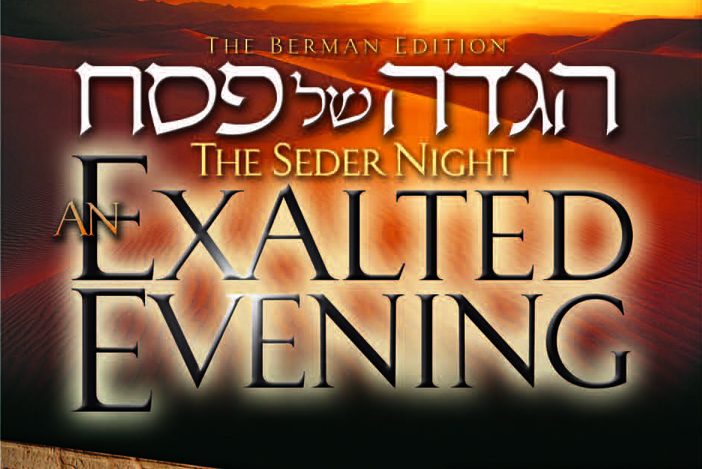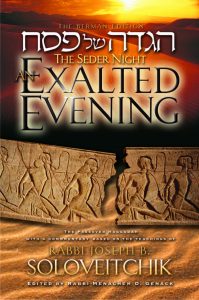Based on a commentary in the new Haggadah, The Seder Night: An Exalted Evening, with the commentary of “the Rav”, Rabbi Joseph Soloveitchik . Compiled by Rabbi Simon Posner.
The birth of the chesed community – of a nation within which people unite, care for each other, share what they possess—is symbolized by the korban Pesach, the paschal sacrifice. God did not need the korban Pesach; He had no interest in the sacrifice. He simply wanted the people—slaves who had just come out of the house of bondage—to emerge from their isolation into the chesed community, where the little that man has is too much for himself, where whatever he possesses transcends his ability to enjoy. At the original korban Pesach in Egypt, God commanded that each household take a lamb for its korban, but if there was too much for the household to eat, they were to invite their neighbor to share with them (Shemot 12: 3-4).
A new fellowship was formed around the korban Pesach; a new community sprang into existence. Being together, living with each other, sharing something many possess in common was made possible by the ceremony of the korban Pesach. The slave suddenly realized that the little he has saved up for himself, a single lamb, is too much for him. The slave spontaneously does something which he would never have believed that he was capable of doing — he knocks on the door of his neighbor whom he had never noticed, inviting him to share the lamb with him and to eat together. The chesed community is born.
If the korban Pesach symbolizes the creation of the chesed community at the time of the Exodus, the Rav sees the recitation of Ha Lachma Anya as symbolizing the manifestation of Jewish solidarity throughout Jewish history. Though the two invitations we issue might initially seem redundant—“Let all who are hungry enter and eat; let all who are in need come and celebrate the Passover”— in reality they are not. Whoever is in need of bread, dichfin, is hungry. Kol ditzrich refers to a different kind of need — one who is alone, who has a lot of matzah and wine but no home or family. The invitation to “all who are in need” is not to eat with us; rather, it is to spend the Pesach with us, yeitei ve-yifsach, to celebrate with us. It is an invitation addressed to unfortunate and lonely people, even though they may be millionaires. Whoever is in need should come and celebrate.
Ha Lachma Anya is the renewal of a pledge of solidarity among the Jewish people—solidarity between individual and individual, and between the individual and the Jewish community as a whole. It is a proclamation that we are one people, and we are ready to help each other. Pesach night is a time of sharing; without manifesting and demonstrating the sense of solidarity, responsibility, unity and readiness to share and to participate, the whole Seder becomes meaningless.

